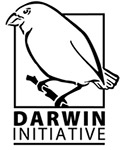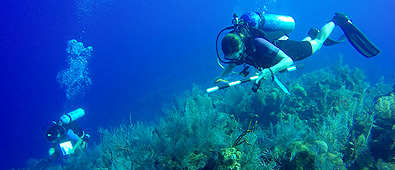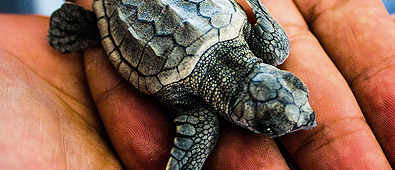Improving Resilience
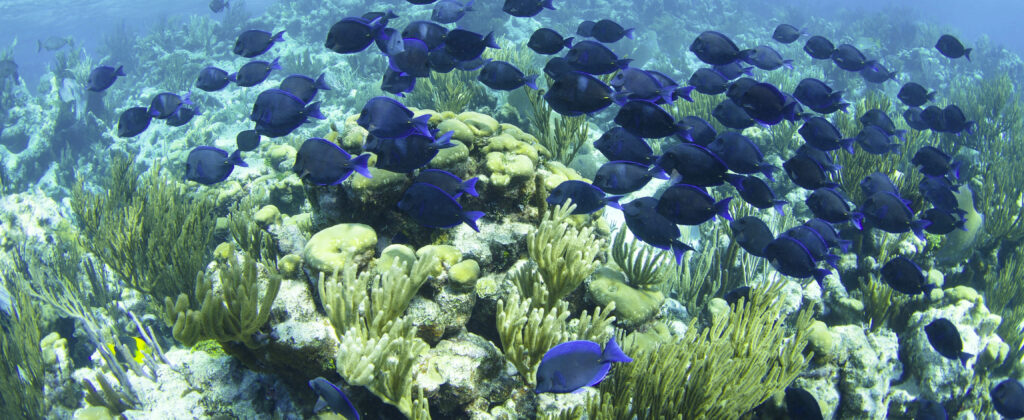
Photo courtesy Claire Fletcher
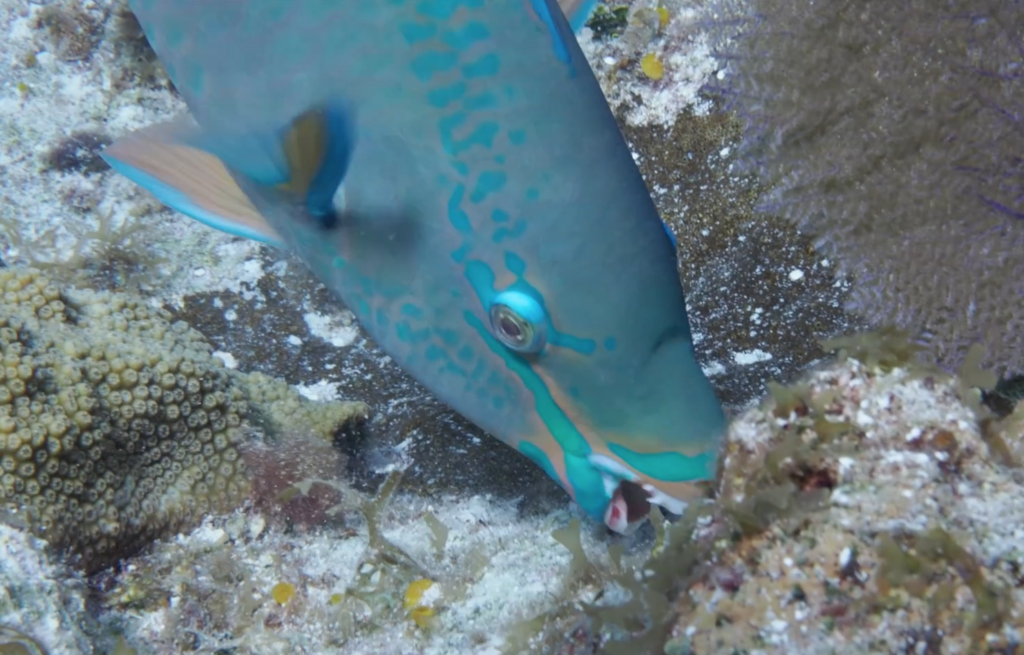
Photo courtesy Claire Fletcher
Herbivorous Fish: Key to Coral Reef Health in the Caribbean
Coral reef health relies on dynamic interactions among key functional groups of organisms. Disruptions to the roles these taxa play (fish, coral and algae) can lead to changes in community structure with negative implications for coral reef biodiversity. Algae is an important food source in reef systems, but it is an excellent competitor to corals and can compromise coral larval recruitment. It has overtaken corals on many reefs, and this phase-shift from coral to algal dominated systems is problematic for the functioning of the reef system and for the people who rely on it.
Herbivorous fish keep algae in check so that corals can grow and reproduce, and this helps to keep the system in balance. This project will identify functionally important herbivores that maintain the balance between algae and corals. The outcomes will help us to understand which herbivorous species make the biggest contribution to the reefs of the Cayman Islands and how we can protect them.
This project is investigating the characteristics of herbivorous fish across all three of the Cayman Islands. This includes understanding their abundance, distribution, their diet preferences and their population connectivity in the local reef ecosystem. We are also seeking to understand the pressures these populations face, so that we can create a comprehensive biodiversity action plan that can be of use to the national government in managing these critical species.
The project is supported by Darwin Plus Initiative, which provides grants for UK overseas territories that are rich in biodiversity, Alexandra Bancorp Limited, the Smithsonian, the Cayman Islands Department of Environment and private donors that support CCMI.
